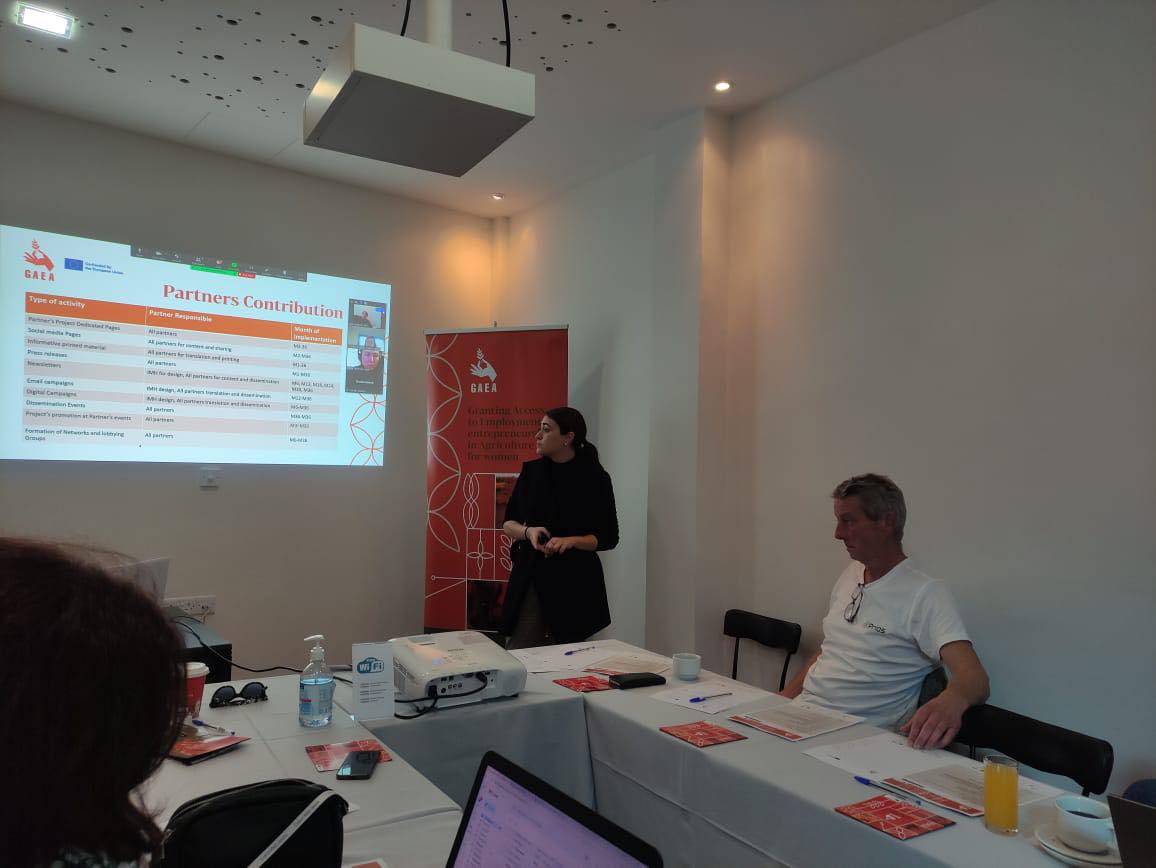Am 7. Und 8. Dezember 2022 fand das zweite transnationale Projekttreffen im ERASMUS+ Projekt GAEA in Nikosia, Zypern statt. Das GAEA Projekt unterstützt junge Frauen im ländlichen Raum, indem ihre unternehmerischen Fähigkeiten gefördert werden, um damit neue Beschäftigungsmöglichkeiten in der Landwirtschaft zu finden. Außerdem richtet sich das Projekt an politische Entscheidungsträger:innen und -gremien, welche dazu ermutigt werden sollen, die Voraussetzungen für Anreize und Ausbildungsmöglichkeiten für Frauen in landwirtschaftlichen Betrieben zu schaffen. Das Treffen brachte alle Projektpartner:innen aus Brüssel, der Tschechischen Republik, Zypern, Deutschland, Griechenland, Ungarn, den Niederlanden, Norwegen, Polen, Slowenien und Spanien zusammen, um den Projektfortschritt zu diskutieren und die nächsten Schritte zu beschließen. Es wird jetzt daran gearbeitet, den Schulungsbedarf zu ermitteln und die Struktur des Schulungskonzepts zu entwerfen.
SoWiBeFo leitet die Qualitätssicherung des Projektskoordiniert die Datensammlung und die Analyse der Nutzerrückmeldungen. Zudem unterstützt SoWiBeFo in der Dissemination. Mehr zum Projekt findet sich auf der Projektwebseite, auf Facebook, Instagram und LinkedIn.

